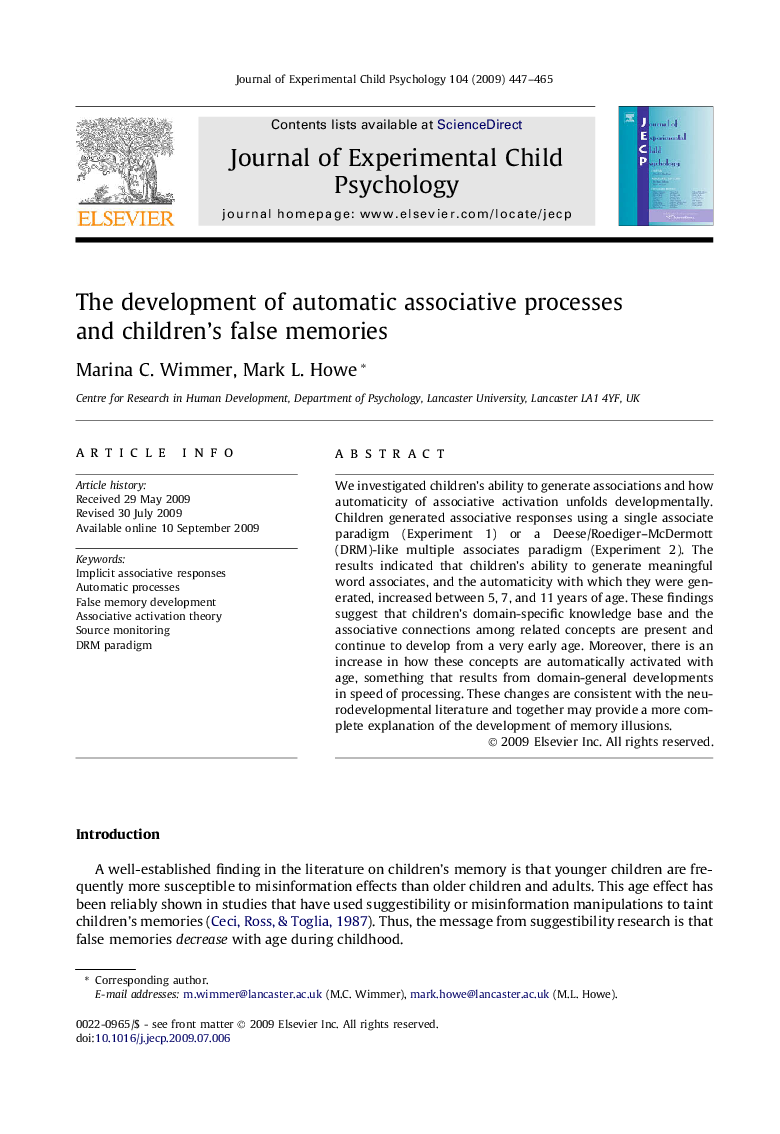| Article ID | Journal | Published Year | Pages | File Type |
|---|---|---|---|---|
| 918578 | Journal of Experimental Child Psychology | 2009 | 19 Pages |
We investigated children’s ability to generate associations and how automaticity of associative activation unfolds developmentally. Children generated associative responses using a single associate paradigm (Experiment 1) or a Deese/Roediger–McDermott (DRM)-like multiple associates paradigm (Experiment 2). The results indicated that children’s ability to generate meaningful word associates, and the automaticity with which they were generated, increased between 5, 7, and 11 years of age. These findings suggest that children’s domain-specific knowledge base and the associative connections among related concepts are present and continue to develop from a very early age. Moreover, there is an increase in how these concepts are automatically activated with age, something that results from domain-general developments in speed of processing. These changes are consistent with the neurodevelopmental literature and together may provide a more complete explanation of the development of memory illusions.
